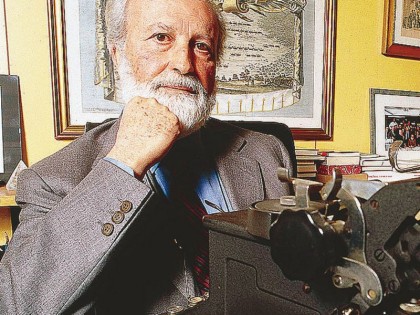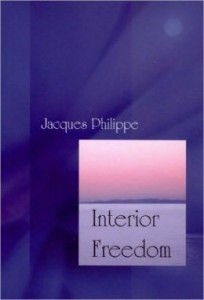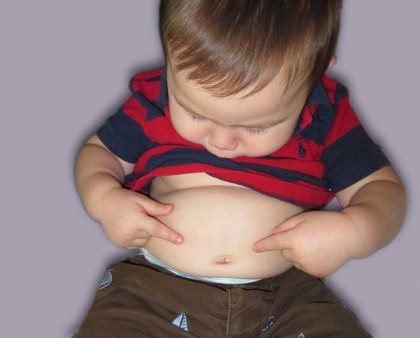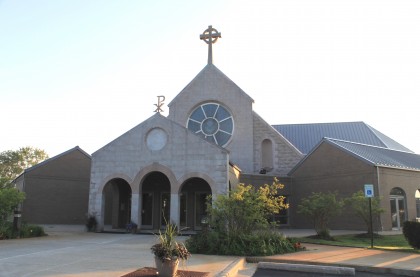Jacques Philippe in Ann Arbor(!)
Devra Torres | Nov 17, 2013
After all my criticism of Eugenio Sclafari, who talked to the Pope without taking notes or recording the conversation and then published the results as an “interview,” I find myself doing something just a little bit similar.

What you are about to read is based on a bunch of notes scribbled at breakneck speed—and since I don’t understand the speaker’s native French, they’re based on a simultaneous translation. It wasn’t a conversation, but a series of talks. The speaker is Jacques Philippe, who, astonishingly enough, addressed us at my parish, Christ the King,
ten minutes away from my house, this weekend. He was the centerpiece of our parish’s women’s retreat. The theme was “Interior Freedom,” the title of his 2010 book.

Not all of what follows is an exact transcription, but I stayed as close to his words as I could.
* * * * *
Man’s thirst for freedom, especially in recent times, coincides with the high value God places on freedom—but things are not that simple. We will look at the mixture of truth and ambiguity in four different ideas of freedom.
- Freedom to transform things according to our own desires: the idea that the more power we have, the more free we are.
This is not altogether false. For example, we can now heal previously incurable sicknesses, so we’re free of them. But even if our power and technological progress continue to increase, we’ll always run into things we’re powerless to change—so, then, are we not free?
No: we still have the freedom to accept things, to accept our own powerlessness, to trust in God.
It’s often in those situations where we can’t change our circumstances that we’re moved to change ourselves, and this can be very liberating.
- Freedom to choose: These days, one is considered free even to choose one’s gender—as well as many other, less dramatic things. This is what I call “supermarket freedom.” We think that the more options we have, the more free we are.

When we’re young, we have lots of choices, lots of possibilities—though eventually we do have to choose some! Choice is also a renouncing. People today wait and wait; sometimes they never choose at all, and then life decides for them—and that’s the opposite of freedom.
By the age of eighty, we’ve already chosen many things; not many choices are open to us any longer. So are we less free? No, we can be more free: free to love. But even when we don’t have choices, we can remain free. A faithful husband is much more free in the order of love than one who exchanges his wife for a new one every year.
- Freedom as independence:
Autonomy, to be ourselves, is good: it is good not to be dependent on others through certain forms of attachment, or through fear. Sometimes we have to take a step back from certain people—but freedom doesn’t consist just in this. Still, dependency is real: we need to recognize what we have received from others. No one can be complete by himself. Also, to be free is to be free to enter into a covenant—especially with God, on whom we’re totally dependent.
- Freedom as spontaneity—being “guided by one’s heart” [This we might call “Disney freedom,” though that's my term, not his.]
Yes, God wants to lead us to this, but it takes time to form the heart, to have the new heart God wants to give us. “Love and do what you will,” St. Augustine says. So in heaven, the heart will be completely purified, fully inhabited by the Holy Spirit. Then, and earlier, too, if our heart is purified, we can “follow our heart.” But following our wounded psyche, our fears—that isn’t the same thing. To get there, we have to accept a whole journey of conversion, of inner work.
* * * * *
So, then, what is real freedom? It takes what’s good from all four understandings. Freedom and love are linked and can’t be separated. There’s no true love without freedom, and no true freedom without love. God wants to be served out of love, not in a spirit of bargaining, of negotiating. (The Church fought from its earliest days for freedom of consent in marriage.) That’s why God respects our freedom: because it’s bound up with love. Sometimes we wish He’d be more firm, “put a bit of order into the universe.”
If we say, “OK, I’m free!” God asks us, “But what do you do with your freedom?
If you don’t use your freedom to express disinterested love, and service—that freedom will self-destruct.

St. Paul says to the Corinthians: “It’s in your own hearts that you are constrained.” It’s true, external freedom is a very positive thing; it’s just not the most important kind of freedom. Whatever we’re in a dynamism of love, we’re free. Ask God: “Show me where my behavior, my decisions, don’t come from love, and therefore aren’t free.”
Love, by the way, is not always “”felt love”—for example, Mother Teresa experienced a prolonged, extreme spiritual aridity.

Here’s a point of reflection: help me to understand when my behavior, my decisions, don’t come from love, but from self-seeking, from wanting to belong to an elite, above others—or where my decisions come (as they very often do) from fear, from the desire for escape, from being turned in on ourselves.
Decisions inspired by fear are not good decisions. Sometimes we do need to protect ourselves, but even then our decisions should be made out of trust, not fear. [Fr. Jacques was careful throughout not to make rash generalizations, to admit exceptions, to respect the delicacy of individual situations.]
Or sometimes we make decisions out of guilt, or a need to expiate something, to deny ourselves happiness, to redeem ourselves, to pay a debt.
But Christ has paid all our debts.
Doing penance for love is good from time to time, but out of love, not out of fear. We feel like we’re never doing enough for God; we feel guilty: but we can create false obligations. Yes, there are real ones! But there are also self-imposed ones: an “obligation” to be accepted by others, for instance. Our behavior may appear good externally, but there’s a certain interior weariness, exhaustion, tension, anger, and frustration, that come from lack of interior freedom. Don’t drive yourself crazy trying to make sure each of your decisions comes from love instead of fear. But do it with freedom. “It’s complex, but just let God do what He wants.”
In order to grow in love, remember: here on earth its foundation is made of faith and hope. In heaven there will be no faith or hope. Here on earth love needs faith and hope: they’re its wings. Love is fragile. Usually if love diminishes it is when someone has lost hope. (“I no longer believe in our marriage”; “I no longer believe in a future.”) Discouragement takes root, and then there’s no foundation for love.

On the other hand, when we have faith, we regain hope, and then a certain courage to love. When someone becomes a little lazy, a little sad, you can see the real problem is discouragement, or despair. It’s no good telling them “You’re wrong” or “You have to do better.” You have to give them back confidence in themselves, in God. To grow in freedom is to grow in love, but for that, you have to grow in faith and in hope. In consequence of that, you’ll grow in love. We can’t love if our heart is narrowed, constricted, from fear, from lack of faith and hope.
Also: we want to be more free—not just for our own comfort, not just to engage in naval-gazing,

but to be more fruitful.
So much for my notes on the first talk. Coming soon: On overcoming resentment, entitlement, anxiety, grudges, worry, regret, and other poisons.


